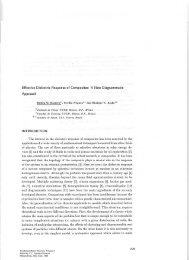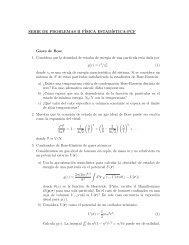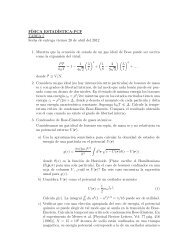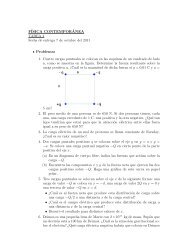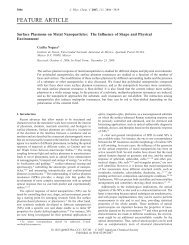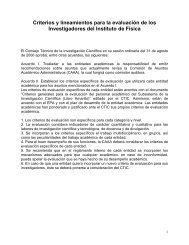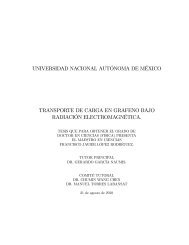Intel(R) - Computational and Systems Biology at MIT
Intel(R) - Computational and Systems Biology at MIT
Intel(R) - Computational and Systems Biology at MIT
Create successful ePaper yourself
Turn your PDF publications into a flip-book with our unique Google optimized e-Paper software.
2 <strong>Intel</strong>® M<strong>at</strong>h Kernel Library User’s GuideObtaining Version Inform<strong>at</strong>ion<strong>Intel</strong> MKL provides a facility by which you can obtain inform<strong>at</strong>ion about the library (forexample, the version number). Two methods are provided for extracting this inform<strong>at</strong>ion.First, you may extract a version string using the function MKLGetVersionString. Or,altern<strong>at</strong>ively, you can use the MKLGetVersion function to obtain the MKLVersionstructure which contains the version inform<strong>at</strong>ion. See the Support Functions chapter in the<strong>Intel</strong> MKL Reference Manual for the function descriptions <strong>and</strong> calling syntax. Sampleprograms for extracting version inform<strong>at</strong>ion are provided in the examples/versionquerydirectory. A makefile is also provided to autom<strong>at</strong>ically build the examples <strong>and</strong> outputsummary files containing the version inform<strong>at</strong>ion for the current library.Compiler Support<strong>Intel</strong> supports <strong>Intel</strong>® MKL for use only with compilers identified in the Release Notes.However, the library has been successfully used with other compilers as well.When using the CBLAS interface, the header file mkl.h will simplify program development,since it specifies enumer<strong>at</strong>ed values as well as prototypes for all the functions. The headerdetermines if the program is being compiled with a C++ compiler <strong>and</strong>, if it is, the includedfile will be correct for use with C++ compil<strong>at</strong>ion.Starting with <strong>Intel</strong> MKL 9.1, full support is provided for the GNU gfortran* compiler, whichdiffers from the <strong>Intel</strong>® Fortran Compiler in calling conventions for functions th<strong>at</strong> returncomplex d<strong>at</strong>a. Absoft Fortran compilers are supported as well. See Linking with the Absoftcompilers in chapter 5 on the usage specifics of the Absoft compilers.Before You Begin Using <strong>Intel</strong> MKLBefore you get started using the <strong>Intel</strong> MKL, sorting out a few important basic concepts willgre<strong>at</strong>ly help you get off to a good start.The table below summarizes some important things to think of before you start using <strong>Intel</strong>MKL.2-2




